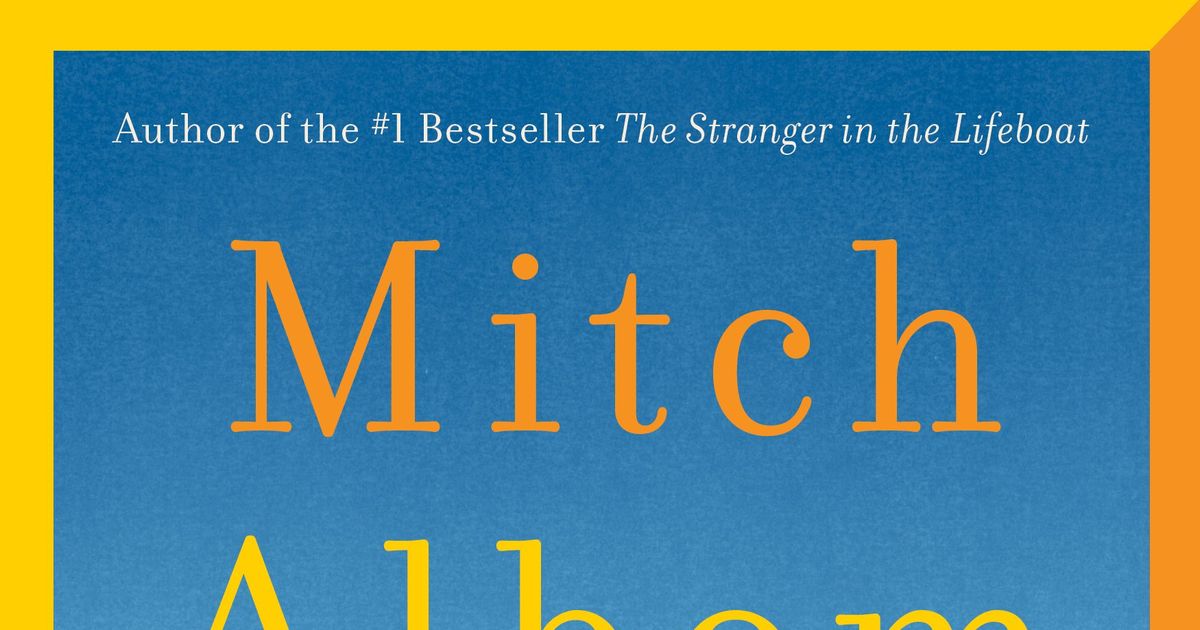Mitch Albom’s new novel, “Twice,” is about a man with the miraculous ability to travel back to any point in his life and make a different choice. A few hours after starting “Twice,” I knew exactly which choice I would make differently.
But alas, here we are.
The story begins in a police station in the Bahamas. Alfie Logan has been detained for questioning after winning more than $2 million correctly playing three straight roulette numbers at a casino. Detective Vincent LaPorta, an experienced investigator of gambling fraud, suspects foul play.
Instead of defending himself, though, Alfie produces a thick handwritten notebook that details the love story of his life. The detective tells him to read it aloud. Whenever Alfie flags, Detective LaPorta orders him to “keep reading.”
That part, at least, rings true: This is the kind of novel that a guard in a locked room must force you to keep reading.
“I get to do things twice,” Alfie says. “I get a second chance at everything. Do-overs. Rollbacks. Whatever you want to call them. It’s a gift. A power. There’s no explanation. But while everyone in the world must suffer the consequences of their actions, I can undo mine and try again.”
Welcome to “Tuesdays With Billy Pilgrim.”
Alfie was 8 years old, living with his missionary parents in Kenya, when he discovered he could travel back in time by tapping any part of his body and saying the word “twice.” While he instantly reappears in the past with his knowledge of the future, everyone else begins reliving that moment as though it were their first time.
Before you get too excited about locating this time-traveling hero, I should mention that Albom confesses in an author’s note that “Alfie is fictional.” Damn you, quantum physics!
But let’s suspend our disbelief for as long as we possibly can.
When Alfie’s mom dies, the boy learns the limits of his power: There is no changing mortality. And he cannot travel back to anything he has not experienced himself. He can’t redo love. Or take anybody back into the past with him. There may be some other guidelines I missed. The rules of this scheme seem to evolve in a haphazard, nonsensical way that will sound familiar to anyone who has played cards with an aggressive 6-year-old.
But for all his godlike ability to relive time, Alfie enjoys an adolescence furnished with modular events picked up from Ikea’s fiction department: friends daring him to ring the doorbell of a scary woman’s house; bullies taunting his sensitive Black friend; a cute girl kissing him during Seven Minutes in Heaven. These generic moments skim by like we are watching “The Wonder Years” at triple speed.
As Alfie gets older, he gets bolder, but Albom grows no more interested in making his experiences engaging. It is as though Alfie’s ability to cheat consequences has drained urgency from the prose. Secure in the knowledge that he can relive any moment, Alfie has “leapt off a mountain in Spain, dived into a pool of sharks in Australia, stood in front of an oncoming train in China.” That litany of adventures demonstrates the abiding flaw of “Twice”: The narration is utterly colorless. Absolved of the possibility of death, the novel suffers the ennui that vampires endure. Alfie’s memory of taking “a bullet during a Mexican bank robbery” feels less vibrant than my memory of dinner at the Olive Garden.
It is astonishing that a man who has sold tens of millions of copies, an author who presumably has access to the finest editors in the business, can continue to produce lines that feel so synthetic and recycled. Albom sometimes even highlights Alfie’s clichés: “You know that expression ‘bowled over’?” he asks. “That’s how I constantly felt.” Later, he says, “This is what they mean when they say ‘choked up’ because I really was.”
But remember Detective LaPorta’s orders: Keep reading.
Eventually, Alfie finds the love of his life, a young woman named Gianna Rule, who wants to become a nature photographer. He follows her to college, where she already has a soccer-star boyfriend with “perfect teeth.” This is too bad for Alfie, but it is a full-blown disaster for us because it inspires him to begin offering lessons in “The Truth About True Love.”
No. 1: “What we yearn for, deep down, is a heart that will embrace us after we make a fool of ourselves.”
At this point, I began to wonder how many bullets were in Detective LaPorta’s gun.
The real tragedy here is that Albom still demonstrates a capacity for genuine tenderness. A scene with Alfie and Gianna trapped on opposite sides of a revolving door in Gimbels is adorable. But such authentic moments – and the fresh descriptions needed to make them sing – are far too rare in this novel, which is bonkers but bland.
Alfie’s romance with Gianna will eventually bloom, of course, but can a nature photographer and a time traveler make it work in this crazy, mixed-up world?
Before we find the answer to that question, we have to follow Alfie to L.A. for a fling with Hollywood’s hottest female action star. This inane episode reads like an author fantasy that for decency’s sake should be periodically deleted along with one’s web history. But periodically deleting things is Alfie’s specialty, which saps the consequences from everything in this novel, leaving us only with those gooey Truths about True Love.
The truth I learned in “Twice” is that once is more than enough.
